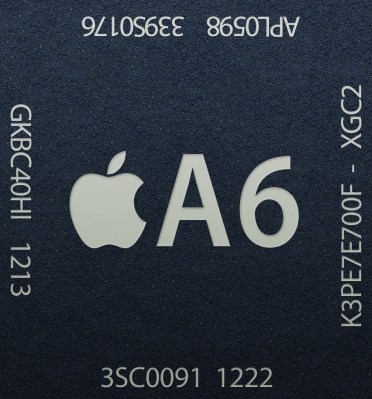Apple and Samsung depend heavily on one another, despite the fact that they’re also at each other’s throats in intellectual property legal disputes around the world. But Apple is looking to reduce Samsung’s role in the manufacturing and design side of its business, in a move that could have greater long-term repercussions for the Korean electronics giant than for the iPhone maker.
The Korea Times reported this weekend that Samsung will no longer be involved in any part of its chip business other than manufacturing, according to a Samsung official who spoke to the publication on condition of anonymity. Previously, Samsung has been somewhat involved on the design side, too, the official said, but now it’s operating strictly on a “foundry basis,” with Apple exclusively handling any and all design duties. That’s in keeping with what teardowns have shown of the chip, which seems to leverage Apple’s chip design-focused acquisitions to create its first truly in-house created system-on-a-chip with the A6 processor that powers the iPhone 5.
It’s also in keeping with another move Apple made recently; namely, the decision to drop Google from its platform as a partner for native apps like YouTube and Maps. Apple seems eager to reclaim control of its platform and hardware from its biggest rivals in the smartphone space, those being Samsung on the hardware side and Google in terms of mobile OS. Of course, cutting the cord has repercussions, as we’ve seen with the blowback from the maps debacle that led to a public apology from Apple CEO Tim Cook.
Apple recently poached one of Samsung’s top chip designers, and the company has also been apparently grooming Taiwan Semiconductor Manufacturing (TSMC) for taking over more production of its processors following the A6. Apple has the resources to lift up Samsung’s chip foundry competition, but it’ll take time – Samsung is still one of the few companies in the world who can handle the kind of volume manufacturing Apple requires to keep its stock of mobile devices flowing to store shelves, and probably the only one that can currently handle its chip foundry needs.
Samsung sold around $7.8 billion worth of components to Apple in 2011, according to one report. And production of the A6 for the iPhone 5 will reportedly bring in more money for the Korean company than any of Apple’s previous processors, but necessity seems to be driving that continued relationship, and Apple is clearly looking for ways around its dependence on its biggest rival. Apple has the luxury of being able to wait until the time is right to switch elsewhere for its chipmaking needs, at which point Samsung will take a big cut in its supply-side business. Now that Apple’s taken the reins with chip design, we’ll see how long it takes for that other shoe to drop.
